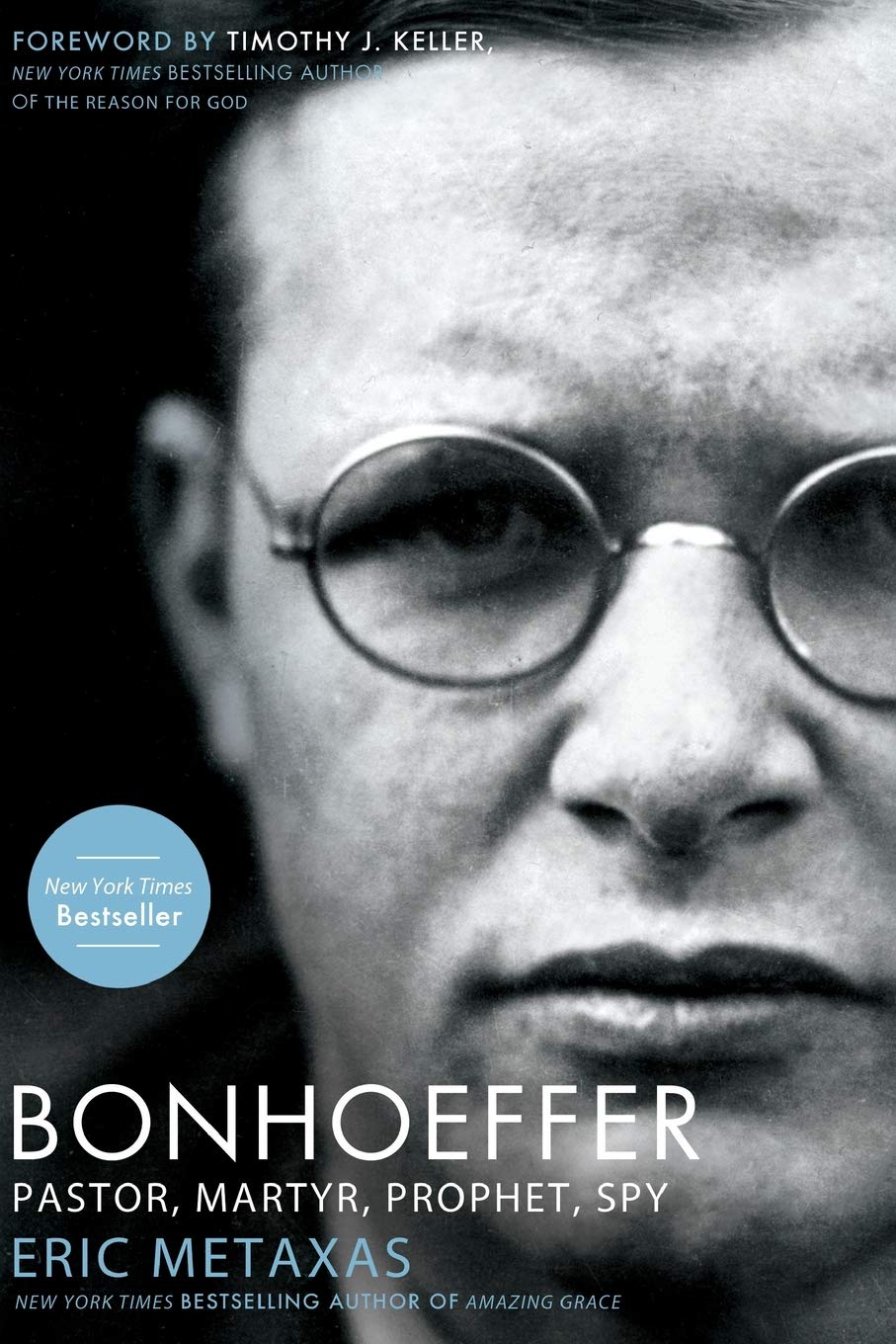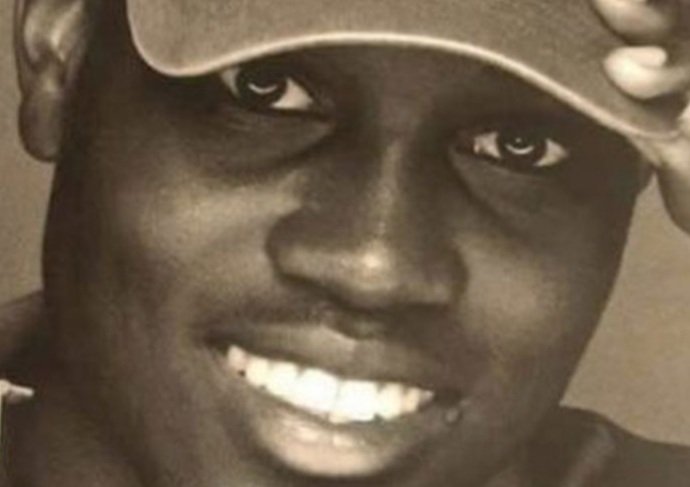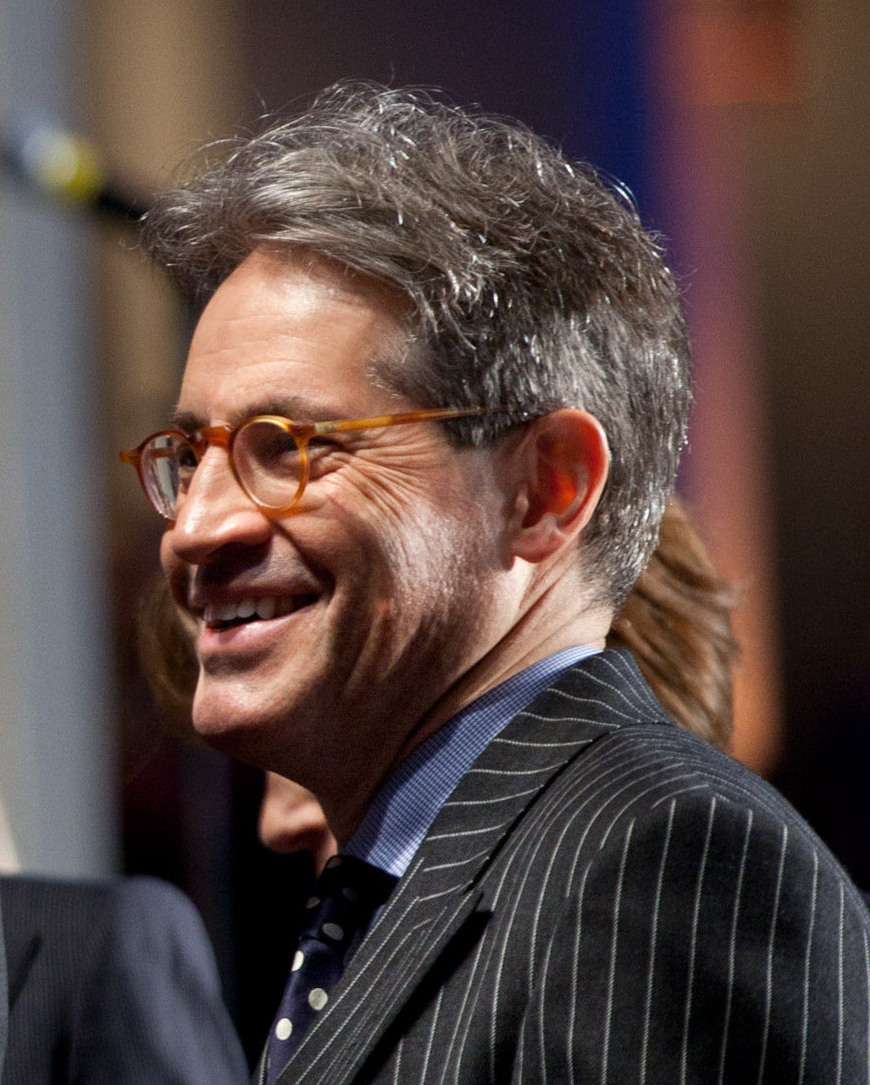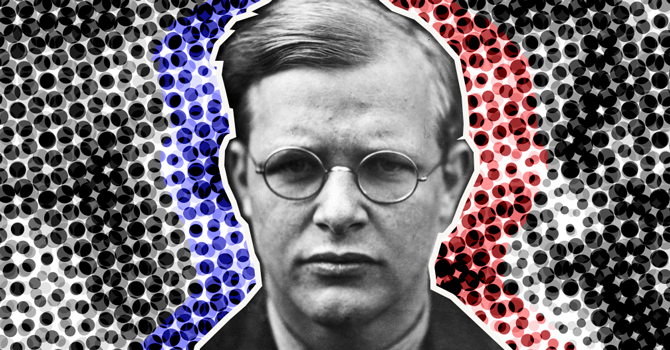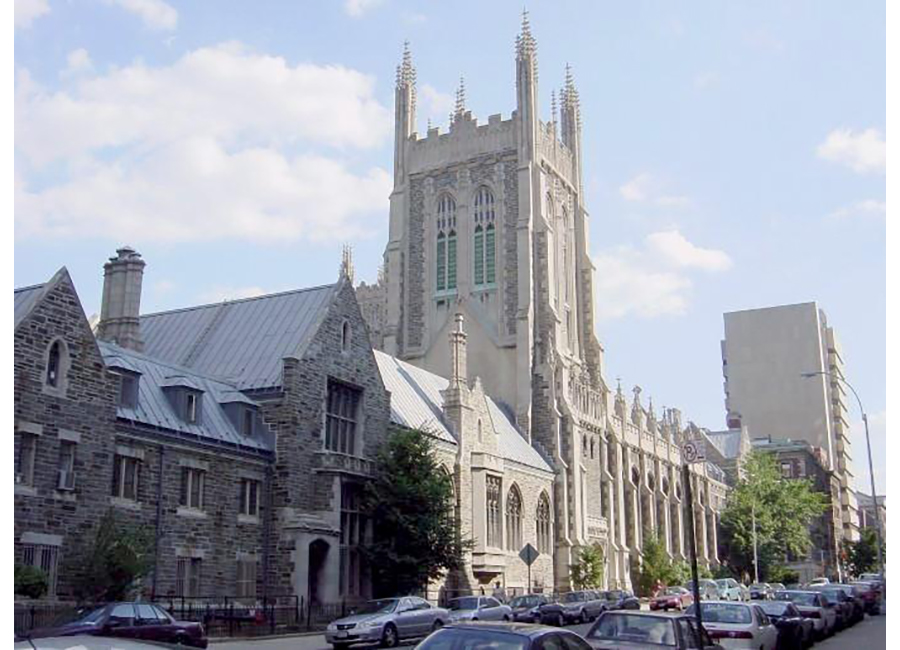 |
| Donald Trump holds a Bible outside St John’s Church across Lafayette Park from the White House , 06.06.2020 |
How ironic. The Christian Church which is to bear the love of God to all the world through God's Divine Son, Jesus, has pulled out its Sword of Religious Justice in defense of its God and the Bible it believes in.
Unless I have missed something here God can quite adequately defend Himself when He needs too (which is NONE of the time). And God doesn't need our hands and feet to add to the pain of the world by inciting yet another Christian-based Inquistion or Faith-based Crusade which has afflicted and alientated the Church from much of the world over the centuries.
Then there are some Christians look at weather events, illness, financial difficulty, addictions, even pandemics and social anathemas as sent from God. Which again, is their view of the bible and the world. It certainly isn't mine, nor have I encouraged anything but the response of loving caretake to all around us. Not swords, not power politics, not cultural wars.
It comes down to the fact of how one reads the Bible. Is it a sacrosanct book so holy that every word is true and unquestionable? If so, than it leaves the Bible's interpretation up to the reader of its pages, as well as to that reader's background and life experiences who deigns to interpret it in his or her's good conscience. This I think alone is grounds enough to question common or popular interpretations of the Bible assuming every word is literally true and to be honored.
First, having met many a Christian and "false Christians-in-sheeps-clothing," over the length of my lifetime, I highly doubt that I would trust my understanding of the Bible to common or popular interpretation knowing it comes with a truckload of assumptions, homilies, folklores, and doubtful interpretations, superstitions, mysticisms, and such like. This includes for me especially those trained "Bible" scholars and Elecutioners behind the Sunday pulpit. I would first want to know the pattern of their life and the direction their "convictions" have taken them.
Secondly, I would want to know if their gospel errors on the side of God's love and humanity's wellbeing or if all the world is condemned to hell in their eyes and must either be converted and condemned to death to die. This latter instance should instill a lot of discernment when seeing such faith perceptions driving its adherents towards ideas of worldly judgment; who are self-appointing themselves and their fellowships to do the work of God's "justice" as they declare juris prudence to mean to them (sic, see the Hand Maid's Tale, as impudent man-made forms of ill-justice).
And after listening to Trump's impeachment lawyers and impolitic politicians defending the "truth" of the President, I am even in more conviction that God's "faithful" are declaring "good evil and evil good" so as to take on the power of the world and force God's Kindgom into the here-and-now.
So my question is, at what point has God directed your Christian faith to take on His job as Revelation declares? However, if this type of Christianity is part of the world's evil hastening the Lord's Coming then woe to those snakes and vipers among us who bring sin and evil by the unjust hands of man yet again to the ill of God's children of the world whom He reaches out to in kindness, respect, guidance, and fulfillment. Your faith has only added to the turmoil of the world you declare you know how to rule.
So pardon by lack of confidence in Christian barristers, preachers, and even "Bible" scholars locked into a faith tradition or worldly outlook which I don't find particularly helpful or attractive or even true. It is much more worthy of hell than it is of heaven's goodness and love.
Which gets me back to my first thoughts. How is a Christian Jihad any different from an Islamic Jihad? For myself, I don't think there is hardly any difference at all. Each self-appointed group believes in their own false ideas of God and the Bible / Koran in which they are willing to carry out unspeakable acts of cruelity, oppression, terror, and harm upon the general populace disbelieving their gospel of hate and division. And well they should!
Secondly, "Who appointed you God?" I highly doubt God did. Nor have I and many other Christians appointed you as our electors of unconstitutional defamation and acts against the American Bill of Rights for all of all colors, genders, sex, race, creed, ethnic, and religion.
Translated: "White Christian Nationalism" is not of God. Nor is silence and hard-heartedness a divine good when tolerating, or contributing to, racism and discrimination in all its forms, oppressions, and harms by silence, inaction, or even tone-deaf Fox-speak of media magnates fomenting illwill and hate.
Lastly, how the Religious Right interprets "Secularism" is yet another large obstacle not realizing that they have baptised themselves head-to-toe in secularism's language and demeanor. Too often I feel the world sees much more clearly than my Christian brothers and sisters who are looking through some kind of ruined mirror askew at everything that is good and beautiful in the world. And yes, the church isn't the sanctioner of "good and beautiful", God is through the megaphone of the world's actions, caretake for one another, and restoration of civil order, humanitarianism, and the environment.
The last council I ever wish to consider is a Christian Church or Movement or Faith group telling humanity what it thinks of everything when many, if not most, of these fellowships are no better or no worse than the rest of the world with its insights. The Christians of this world would do better to error on the side of love and humane action than to grab a sword and wave it at everybody as they do the Bible declaring "Thus saith the Lord" when in truth is its "Thus saith I". To me these are actions and words of abomination unworthy to be heard bearing not the Spirit of the Lord but the pit of Hell itself.
The best thing many Christians could do is to shut their mouths if they cannot speak and act out God's love. To learn to learn from God, fellow Christian humanists, and the world itself the wisdom it must acquire if wishing to minister well to people.
Your Christian culture wars are an abomination. Your leadership of false prophets and teachers speak shame upon the name of Jesus. And your politicians have shown themselves to be unjust, unmerciful, ruined in conviction and integrity, and generally an abysmal lot of sour humanity.
The Lord of the Earth and Mankind looks not kindly on those Christian Churches taking up the world into its own hands. God will rectify the world as He will, not us. The Church's contribution to the world's pain is absurd and nonsense. Holding up Bibles declaring the "justice of God" only succeeded in bringing up mockery to the precious faith of Jesus as the world jeers at the Church's hypocrisy. How is it the world knows God's love better than you do? Really, How?!
If the love of God is not in you, says the Apostle Paul, then ye are not of God, nor of His gospel. Look first to yourselves to repent of your wicked gospel, your ruined systems of ill-theology, and mythical beliefs of whose right and whose wrong. The last time I looked the Church is struggling no more than all the rest of us "secular" beings trying to figure things out.
I write these harsh words in peace and love to my brethren that they might repent and learn wisdom. Bless O' Lord these words.
Amen.
R.E. Slater
June 5, 2020
* * * * * * * * * * * * * * *
 |
| Photo-Op in front of a Social Justice Reformer of the Catholic Church (06.01.2020) |
 |
| Trump holding up Bible in front of St. John's Church sign saying "All Are Welcome" (06.01.2020) |
Trump's photo op with church and Bible
was offensive, but not new.
by Beth Daley, Editor and General Manager
June 4, 2020
US President Donald Trump delivered an address this week in which he threatened military action on the nation. Then he walked to the nearby St John’s Episcopal Church to pose with a Bible.
Yes, Trump held the Bible like a baby holding a spoon for the first time – unsure which end is which – but the real problem was the complete disconnection between the text in his hand and the force, both verbally threatened and actually used, to clear the way for his stunt. Tear gas and militarised police cleared crowds, including some of the church’s own clergy from its grounds, in order for Trump to pose in front of the church.
While Christian outrage at Trump’s hypocrisy is genuine, for reasons that several Christian leaders have elegantly articulated, we need to ask ourselves: did Trump do anything new? Has he done anything that powerful “Christian” leaders haven’t done for centuries?
The answer is no.
Co-opting Christianity in the service of power is almost as old as Christianity itself. In the culture war raging in America, the very president who has stoked the flames of racism and white supremacy effectively claimed God is on his side. It is deeply offensive, but it is not new.
In the early fourth century CE, Flavius Valerius Constantine would defeat his brother-in-law, Maxentius, in a battle for control of the Roman Empire. His victory would solidify him as emperor of a vast western empire.
The legend goes that Constantine had a vision before the battle on Milvian Bridge: he saw a cross of light in the sky and heard a voice that said, “in this sign, conquer”. The next morning, Constantine ordered his soldiers to paint crosses on their shields. They marched into battle as the first cross-bearing “Christian” soldiers. When Constantine won, he would attribute his victory to the God of the Christians.
While historians are quick to point out that this “conversion” of Constantine is as much myth as reality, and may have been motivated by either political expediency or sheer superstition, it marked a turning point for Christianity. The new emperor’s adoption of the cross transformed a persecuted, minority sect into a legitimate religion and, eventually, the official state religion.
The use of propaganda and standardised imagery was not new for the Roman Empire. Indeed, they were already experts in using imagery to communicate dominance, power and a certain worldview. The new element in 312 CE was the type of imagery; Christian instead of pagan, a cross representing the death and resurrection of Jesus instead of a god, goddess or symbol from the Roman Pantheon.
We have been left with a legacy in Western Christianity of powerful rulers claiming God for their cause. The Crusaders rode out to fight Muslims with chests and shields adorned with the sign of the cross, popes would wield more power than kings, and God’s name would be invoked in war after war.
Eventually, Christianity became so synonymous with colonial power and whiteness that the two can be hard to distinguish. It is telling that, in the new Western empire, no American president has been elected without explicitly signalling his Christian faith.
Photoshopped images of Hitler with a Bible started to circulate this week following Trump’s stunt. Evidence already exists for the casual way in which Hitler, too, co-opted Christianity for his cause. A 1930s propaganda book titled Hitler as No One Knows Him contains numerous photographs of Hitler designed to make him likeable. One of them has him leaving a church, implying his Christian faith and basic decency, suggesting he is a good Christian just like so many of those who were deceived by his politics and drafted to his cause.
Closer to home, the Bible arrived on the shores of Australia in the hands of those who would colonise this land through violence and domination. Its diverse history here has been described by Meredith Lake. But the Bible was, at least superficially, synonymous with white culture and power. It would be (mis)used to justify colonisation in Australia just as it was to argue for apartheid in South Africa.
The co-option of Christian symbols by Western Christian empires has meant its core symbols have often been inverted in meaning. The great irony is that the cross worn as a symbol of power and victory by imperial soldiers was first the symbol of the unjust death of Jesus, a brown-skinned Jew killed by the Roman State. It was a shameful symbol in that culture, an image for a humiliating public death.
The Bible, wielded by Trump and others like him, likewise did not begin its life as the text of the victor. Had Trump read the text he held, he would have found a story of liberation for slaves, a divine preference for the poor, a demand of justice for the marginalised, a cry of lament from those who grieve, and a damning critique of any empire that oppressed its people.
What Trump did was not new. But perhaps we are offended because his delivery was so unsophisticated, an insult to our intelligence for its lack of pretence at genuine faith. He didn’t even attempt to enter the church and pray nor open the Bible and read it.
Both church and Bible were mere backdrops, doing the rhetorical work Trump needed in signalling his virtue and values to his base. Values, to be clear, that are antithetical to both the building and the book in his hand.
* * * * * * * * * * * * * * *
Observations
by R.E. Slater
- Context is everything. If you know the context you will then know the deep blasphemy which President Trump committed in front of St. John's Church and a Catholic Church later that same day.
- Was President Trump's photo-op an act of desecration? Has similar acts occurred in history using a symbol of goodness and healing as a symbol bearing illicit in evil?
- Leaning into the gospel of Christ requires leaning into your community with God's love and His message to love. Anything less - any gospel less - is not of God but of man.
- We hold up Jesus, not a book. Into a book we can write any story; in Jesus the story we write is one of love. This is the action and spirit we hold up which welcomes all as the church sign said contra a religious Trumpland of unwelcome and unwillingness to engage in embracing our brothers and sisters of color.
- Ironically, a white gospel is held up in front of a truly Christian church preaching social justice reform through the actives of love as exampled by Jesus in the Gospels.
- The Bible declares we love one another. To those false leaders of hate and division we reject their teachings, their descrating lies, and their leadership. They are of the devil and not of God for ye will know God's disciples by God's love.
- Desecration of the Word of God on the steps of a church which actively practices social justice. Behind the president stands a sign saying, "All are welcomed." Clearly the optics do not measure up to the "White" House's active apartheid policies against people of color. If it was, the president would've bent down on one knee seeking repentance in confessional prayer for the loss of black lives under police arrests. Blasphemy is holding a bible of the God of love who is unknown, unread, and unpracticed, claiming that Christ is the center of one's life when in words and deeds there is no such truth.
- Leaning into the gospel of Christ requires leaning into your community with God's love and His message to love. Anything less, any gospel less, is not of God but of man.
- Healing: Speaking to Black and White communities alike. Without love for one another we cannot enter a Promised Land overflowing with honey and light. With silence and inaction a people remain divided forever.
* * * * * * * * * * * * * * *
 |
| The People's House has been lost to Religious Jihadists |
Related News Articles
What does the Symbolism of Holding a Bible Aloft Mean?
- Autocrats Love Using the Bible as a Prop. Americans Shouldn’t.
- https://foreignpolicy.com/2020/06/02/autocrats-idolatry-trump-protests-george-floyd-america/
- Donald Trump, a Bible, and blasphemy
- https://www.macleans.ca/opinion/donald-trump-a-bible-and-blasphemy/
- Trump Defends 'Law And Order' Symbolism Of Photo-Op At St. John's Church
- https://www.npr.org/2020/06/03/868779265/trump-defends-symbolism-of-photo-op-at-st-johns-church
- He wears the armor of God': evangelicals hail Trump's church photo op
- https://www.theguardian.com/us-news/2020/jun/03/donald-trump-church-photo-op-evangelicals
- What Does the Bible Mean to Trump?
- https://www.nytimes.com/2020/06/02/us/politics/trump-bible-st-johns.html
- “An Abuse of Sacred Symbols”: Trump, a Bible, and a Sanctuary
- https://www.newyorker.com/news/daily-comment/an-abuse-of-sacred-symbols-trump-a-bible-and-a-sanctuary
- Jimmy Carter on George Floyd protests: 'Silence can be as deadly as violence'
- https://www.cnn.com/2020/06/03/politics/jimmy-carter-george-floyd/index.html
* * * * * * * * * * * * * * *
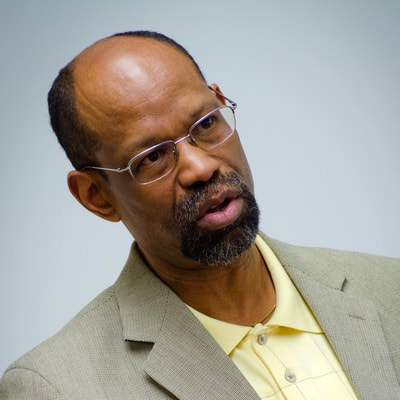 |
| Dr. Richard Rose |
A Beloved Civilization:
[Martin Luther] King’s Dream and Covid-19
by Rev. Dr. Richard Rose
After witnessing the blasphemy of an infant president holding up a Bible in front of a church as if it were a semi-automatic rifle, pulling his lackeys into the mix for a photo op aimed at sustaining a more hateful America, I needed to turn to a scholar who actually reads the book on a daily basis and for whom the Bible is meaningful as a guide for living. Someone who is African-American and works closely with the black church. Someone who is steeped in the vision of Dr. Martin Luther King, Jr. and sensitive to the needs of people of all faiths (and no faith) to work together in bringing about a paradigm shift: a shift from inequality and hatred into a beloved community that is good for people and for the earth, with no one left behind. I turned to Dr. Richard Rose of La Verne University, author of An Interreligious Approach to a Social Ethic for Christian Audiences (2017) and 7 Meditations on the Lord’s Prayer (2016). It helped.
- Jay McDaniel, Process Scholar and Bible Teacher


* * * * * * * * * * * * * * *
Jimmy Kimmel on Protests, Trump’s Bible Photo Op
& White Privilege June 2, 2020
'He wears the armor of God':
Evangelicals hail Trump's church photo op
by Matthew Teague
June 3, 2020
The president’s appeal to his base amid protests was derided
by some Christians. Others saw a victory in a world of evil.
No one accuses Donald Trump of subtlety. When the US president raised a Bible overhead on Monday evening outside St John’s Episcopal church in Washington DC, the sign was unmistakable: an appeal to his white evangelical base for loyalty, as protests and riots roared across America.
Not every Christian answered the call. The Rev Gini Gerbasi, an Episcopal priest, said police used teargas to drive her and others from St John’s before Trump’s appearance. “They turned holy ground into a battleground,” she told Religion News Service.
But many of Trump’s evangelical supporters, far from Washingtons political stage, saw the move as a victory in a world rife with evil.
“My whole family was flabbergasted,” said Benjamin Horbowy, 37.
The Horbowys had gathered in Tallahassee, Florida, to watch live as Trump walked from the White House to St John’s. “My mother just shouted out, ‘God give him strength! He’s doing a Jericho walk!’”
A Jericho walk, in some evangelical circles, refers to the biblical book of Joshua, where God commanded the Israelites to walk seven times around the opposing city of Jericho, whose walls then came crashing down.
Horbowy already supported Trump politically – he heads the local chapter of a pro- Trump motorcycle club and is campaigning for a seat in Florida’s state senate – but when Trump lifted the Bible, Horbowy and his family felt overcome spiritually.
“My mother started crying. She comes from Pentecostal background, and she started speaking in tongues. I haven’t heard her speak in tongues in years,” he said. “I thought, look at my president! He’s establishing the Lord’s kingdom in the world.”
Did he feel that conflicted with the Gospel of John, where Jesus said “my kingdom is not of this world”?
“Well,” Horbowy said, “that’s a philosophical question.”
After watching Trump’s gesture, Horbowy changed his Facebook profile photo to one of Trump outside St John’s, with added rays of light emanating from the Bible. “It was the coolest thing he could do. What more could he do, wear blue jeans and ride in on a horse?” he said.
The catalyst for the protests was the killing of 46-year-old George Floyd by Minneapolis police. Asked about that, Horbowy said, “There’s a Bible verse that says we shouldn’t talk about evil things. We can just say, ‘There’s evil’ and move on.”
He couldn’t remember the exact verse, he said.
So how did devotees like Horbowy become such a potent force that Trump would signal them in his hour of need? One answer lies in their relationship with Trump. They have given him their fervent support at the ballot box and in turn they have seen a conservative takeover of the courts and an assault on reproductive and LGBTQ+ rights.
Their power and worldview is a culmination of trends that started decades ago, according to John Fea, a history professor at Messiah College and himself an evangelical Christian. “It’s rooted in fear,” he said.
In the 1980s, Fea said, several forces converged to alarm white Christians: a removal of official prayer and Bible readings from schools, an influx of immigrants from Asia and the Middle East, and the final desegregation of schools like Bob Jones University.
“So came the emergence of the Christian right,” Fea said.
Figures like Jerry Falwell and James Dobson started wielding political influence in a new way, followed today by a new generation that includes Franklin Graham and the Dallas pastor Robert Jeffress, one of Trump’s leading evangelical defenders.
“What seems to be missing in much of the coverage is that a group of protesters had tried to burn that church to the ground 24 hours earlier,” Jeffress said.
Jeffress sees no conflict between Trump’s behavior and the Bible he held up on Monday evening. “You mean, does he pretend to be perfectly pious?” he said. “No.”
Fea calls faith leaders like Jeffress “court evangelicals”.
“Trump has these people around him,” Fea said. “They’re telling him, ‘You need to get your evangelical base on board.
People once concerned with piety, Fea said, now crave “an exercise in pure political power”, and the Bible is no longer a spiritual weapon but an earthly one.
When Trump describes himself as a “law and order” president and holds aloft a Bible, he conflates which law he will enforce, and whose order will follow. In a short speech before the walk to St John’s, Trump said he would “dominate the streets”. That is the “kingdom in the world” Horbowy referenced.
“I believe it’s like Ephesians 6:10 through 19,” Horbowy said from Florida. “I believe this is a president who wears the full armor of God.”
But one of those verses – verse 12 – says explicitly that “we do not wrestle against flesh and blood”, but against spiritual enemies.
“Well,” Horbowy said. “He’s fearless.”
* * * * * * * * * * * * * * *
 |
| President Trump appealing to the Christian Right |
The Christians Who Loved Trump’s Stunt
by McKay Coppins
June 2, 2020
He wielded the Bible like a foreign object, awkwardly adjusting his grip as though trying to get comfortable. He examined its cover. He held it up over his right shoulder like a crossing guard presenting a stop sign. He did not open it.
“Is that your Bible?” a reporter asked.
“It’s a Bible,” the president replied.
Even by the standards of Donald Trump’s religious photo ops, the dissonance was striking. Moments earlier, he had stood in the Rose Garden and threatened to unleash the military on unruly protesters. He used terms such as anarchy and domestic terror, and vowed to “dominate the streets.” To clear the way for his planned post-speech trip to St. John’s Church, police fired tear gas and rubber bullets into a crowd of peaceful demonstrators.
A few hours after the dystopian spectacle, I spoke on the phone with Robert Jeffress, a Dallas megachurch pastor and indefatigable Trump ally. He sounded almost gleeful.
“I thought it was completely appropriate for the president to stand in front of that church,” Jeffress told me. “And by holding up the Bible, he was showing us that it teaches that, yes, God hates racism, it’s despicable—but God also hates lawlessness.”
“So,” he added, “I’m happy.”
In many ways, the president’s stunt last night—with its mix of shallow credal signaling and brutish force—was emblematic of his appeal to the religious right. As I’ve written before, most white conservative Christians don’t want piety from this president; they want power. In Trump, they see a champion who will restore them to their rightful place at the center of American life, while using his terrible swift sword to punish their enemies.
This dynamic was on vivid display throughout the night. Even as cities across the country once again spiraled into chaos, prominent conservative evangelicals cheered Trump’s performance on Twitter.
“I don’t know about you but I’ll take a president with a Bible in his hand in front of a church over far left violent radicals setting a church on fire any day of the week,” wrote David Brody, a news anchor at the Christian Broadcasting Network. (Trump selected St. John’s, which has hosted presidents since James Madison for worship services, because protesters had set a fire in its nursery the night before.)
“I will never forget seeing [Trump] slowly & in-total-command walk … across Lafayette Square to St. John’s Church defying those who aim to derail our national healing by spreading fear, hate & anarchy,” wrote Johnnie Moore, the president of the Congress of Christian Leaders.
In an email to me, Ralph Reed, the chairman of the Faith and Freedom Coalition, heaped praise on Trump for his visit: “His presence sent the twin message that our streets and cities do not belong to rioters and domestic terrorists, and that the ultimate answer to what ails our country can be found in the repentance, redemption, and forgiveness of the Christian faith.”
Andrew Whitehead, a sociologist at Clemson University, has argued that Trump’s religious base can best be understood through the lens of Christian nationalism. In his research, Whitehead has found that white Protestants who believe most strongly that Christianity should hold a privileged place in America’s public square are more likely than others to agree with statements such as “We must crack down on troublemakers to save our moral standards and keep law and order” and “Police officers shoot blacks more often because they are more violent than whites.”
Whitehead told me in an interview that Christian nationalism is often not really about theology (and thus can’t be ascribed to all conservative churchgoers): “It’s about identity, enforcing hierarchy, and order.”
That Trump’s religious posturing has little to do with religion has long been a matter of conventional wisdom (see: Corinthians, Two); fewer have grasped the extent to which that’s true of Trump’s “religious” base as well.
After the president’s unannounced visit to St. John’s, Mariann Budde, the Episcopal bishop of Washington, D.C., gave an outraged interview to The Washington Post. “Everything he has said and done is to inflame violence … We need moral leadership, and he’s done everything to divide us, and has just used one of the most sacred symbols of the Judeo-Christian tradition,” she said.
But, of course, sacredness has never been a concern of Trump’s. He didn’t open the Bible he was brandishing for the cameras, because he had no use for its text. He didn’t go inside the church he was using as a backdrop, because he had no interest in a sermon.
To Trump, the Bible and the church are not symbols of faith; they are weapons of culture war. And to many of his Christian supporters watching at home, the pandering wasn’t an act of inauthenticity; it was a sign of allegiance—and shared dominance.
*MCKAY COPPINS is a staff writer at The Atlantic and the author of The Wilderness, a book about the battle over the future of the Republican Party.
* * * * * * * * * * * * * * *
 |
| Rector Gerbasi inside St. John’s Church |
Powerful Eyewitness Testimony from Rector Gina Gerbasi who was at St. John’s Episcopal Church on Lafayette Park today, about the President’s unannounced ‘visit’ to the church:
“Friends, I am ok, but I am, frankly shaken. I was at St. John's, Lafayette Square most of the afternoon, with fellow clergy and laypeople - and clergy from some other denominations too.
We were passing out water and snacks, and helping the patio area at St. John's, Lafayette square to be a place of respite and peace. All was well - with a few little tense moments - until about 6:15 or so. By then, I had connected with the Black Lives Matter medic team, which was headed by an EMT. Those people were AMAZING. They had been on the patio all day, and thankfully had not had to use much of the eyewash they had made.
Around 6:15 or 6:30, the police started really pushing protestors off of H Street (the street between the church and Lafayette Park, and ultimately, the White House. They started using tear gas and folks were running at us for eyewashes or water or wet paper towels. At this point, Julia, one of our seminarians for next year (who is a trauma nurse) and I looked at each other in disbelief. I was coughing, her eyes were watering, and we were trying to help people as the police - in full riot gear - drove people toward us. Julia and her classmates left and I stayed with the BLM folks trying to help people. Suddenly, around 6:30, there was more tear gas, more concussion grenades, and I think I saw someone hit by a rubber bullet - he was grasping his stomach and there was a mark on his shirt.
The police in their riot gear were literally walking onto the St. John's, Lafayette Square patio with these metal shields, pushing people off the patio and driving them back. People were running at us as the police advanced toward us from the other side of the patio.
We had to try to pick up what we could. The BLM medic folks were obviously well practiced. They picked up boxes and ran. I was so stunned I only got a few water bottles and my spray bottle of eyewash.
We were literally DRIVEN OFF of the St. John's, Lafayette Square patio with tear gas and concussion grenades and police in full riot gear. We were pushed back 20 feet, and then eventually - with SO MANY concussion grenades - back to K street. By the time I got back to my car, around 7, I was getting texts from people saying that Trump was outside of St. John's, Lafayette Square.
I literally COULD NOT believe it. WE WERE DRIVEN OFF OF THE PATIO AT ST. JOHN'S - a place of peace and respite and medical care throughout the day - SO THAT MAN COULD HAVE A PHOTO OPPORTUNITY IN FRONT OF THE CHURCH!!! PEOPLE WERE HURT SO THAT HE COULD POSE IN FRONT OF THE CHURCH WITH A BIBLE! HE WOULD HAVE HAD TO STEP OVER THE MEDICAL SUPPLIES WE LEFT BEHIND BECAUSE WE WERE BEING TEAR GASSED!!!!
I am deeply shaken. I did not see any protestors throw anything until the tear gas and concussion grenades started, and then it was mostly water bottles. I am shaken, not so much by the taste of tear gas and the bit of a cough I still have, but by the fact that that show of force was for a PHOTO OPPORTUNITY.
The patio of St. John's, Lafayette square had been HOLY GROUND today. A place of respite and laughter and water and granola bars and fruit snacks. But that man turned it into a BATTLE GROUND first, and a cheap political stunt second.
I am DEEPLY OFFENDED on behalf of every protestor, every Christian, the people of St. John's, Lafayette square, every decent person there, and the BLM medics who stayed with just a single box of supplies and a backpack, even when I got too scared and had to leave. I am ok. But I am now a force to be reckoned with.”
- Rector Gina Gerbasi







